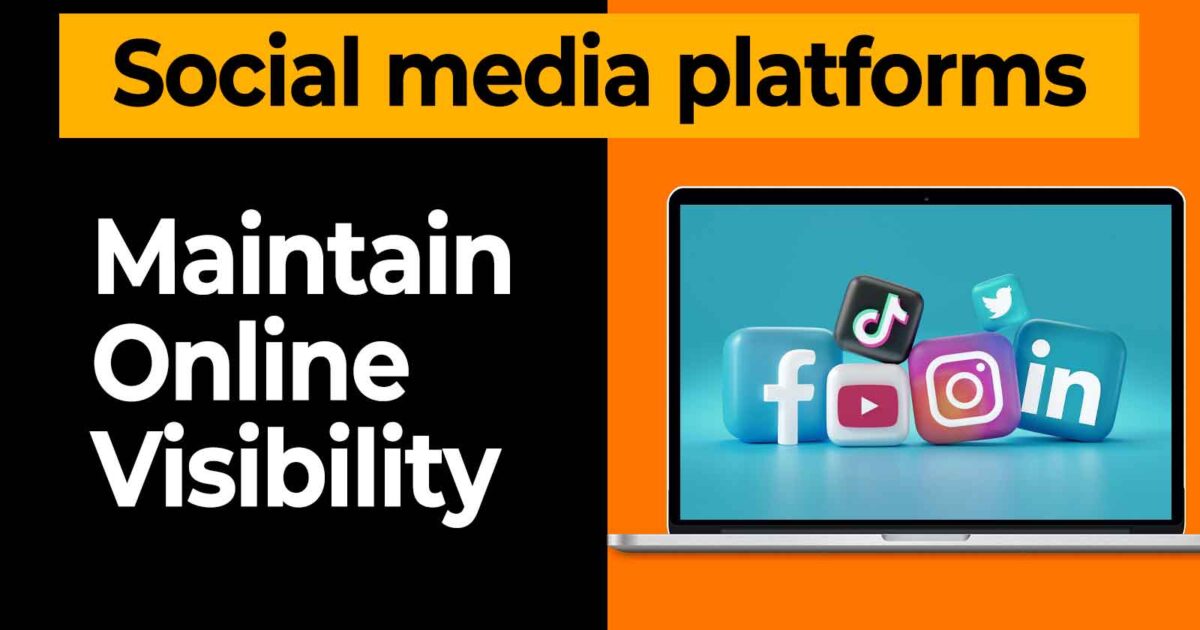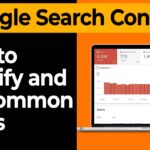
In today’s digital world, businesses must prioritize online visibility to thrive and grow. Social media platforms, with their vast user bases and interactive features, are indispensable tools for reaching audiences. However, relying solely on social media may not be the best long-term strategy. While it provides significant benefits, it has limitations that businesses need to address. This article explores the role of social media, its challenges, and how to build a robust online presence by integrating various strategies.
Table of Contents
The Role of Social Media in Online Visibility
Social media platforms such as Facebook, Instagram, Twitter, and LinkedIn have revolutionized how businesses connect with their target audiences. They allow companies to share content, engage with followers, and gain insights into audience behavior. With billions of users globally, social media enables businesses to:
- Increase brand awareness: Frequent posting and interactions keep businesses visible.
- Engage with customers: Real-time communication builds stronger relationships.
- Showcase products and services: Visual platforms like Instagram are ideal for product promotions.
Moreover, social media content indirectly supports search engine optimization (SEO) efforts. For example, shared links can drive traffic to websites, improving their search engine rankings. Despite these advantages, social media has certain drawbacks that make it insufficient as a stand-alone strategy.
Challenges of Relying Solely on Social Media
While social media is powerful, businesses face significant challenges when they depend solely on these platforms:
Algorithm Dependency
Social media algorithms constantly evolve. Changes can limit the organic reach of posts, making it harder for businesses to connect with their audience without paying for advertisements. Posts that fail to meet algorithmic preferences may go unnoticed, regardless of their quality.
Limited SEO Impact
Social media platforms contribute to online visibility, but their impact on SEO is limited compared to optimized websites. Structured data, meta tags, and keyword-rich content are better managed on a dedicated website, enhancing search rankings and discoverability.
Lack of Ownership
Businesses do not own their social media platforms or the data collected through them. Policy changes, account suspensions, or platform shutdowns can result in the loss of followers and valuable insights.
The Need for a Multi-Platform Strategy
A sustainable approach to online visibility combines social media with other channels. Integrating social media with a website, email marketing, and content marketing ensures a broader reach and more substantial engagement. Diversifying platforms reduces the risks associated with algorithm changes and platform policies.
Websites: The Core of Online Presence
A well-designed website serves as the foundation for a business’s online identity. Unlike social media accounts, websites offer complete control over content, design, and functionality. Here’s why a website is essential:
- Ownership and stability: Websites are independent of external platforms.
- Search engine optimization: Optimized websites rank higher on search engines, driving organic traffic.
- Centralized hub: Websites consolidate all online activities, directing users from social media and email campaigns.
For example, blog articles, product pages, and service descriptions on a website can be shared across social media, driving traffic back to the site.
Leveraging Content Marketing
Content marketing is a critical component of online visibility. Informative and engaging content, such as blogs, videos, and guides, attracts and retains audiences. Here’s how businesses can benefit:
- Boost SEO: High-quality content with targeted keywords improves search rankings.
- Establish authority: Regularly published content positions businesses as industry leaders.
- Drive traffic: Content shared on social media redirects users to the website, enhancing engagement.
Consistency is key. Publishing relevant and valuable content builds trust and credibility, making audiences more likely to engage and convert.
Combining Social Media with Email Marketing
Email marketing complements social media by delivering personalized messages directly to subscribers. Unlike social media posts, which target broader audiences, emails cater to individual preferences. Benefits include:
- Customized communication: Tailored content improves customer engagement.
- Higher conversion rates: Emails often lead to more sales compared to general social media posts.
- Synergy with social media: Social media campaigns can drive email sign-ups, and email newsletters can promote social media content.
For instance, a company can run a social media contest encouraging users to subscribe to their email list for exclusive offers.
Influencers and Collaborations
Partnering with influencers and collaborating with other brands can amplify a business’s reach. Influencers have established audiences and can introduce businesses to new demographics. Here’s how to maximize these partnerships:
- Targeted outreach: Collaborate with influencers whose followers align with your target audience.
- Multi-platform exposure: Work with influencers active on various platforms to broaden visibility.
- Enhanced credibility: Recommendations from trusted influencers build consumer trust.
Collaborations with complementary businesses can also expand reach by tapping into each other’s audiences.
The Importance of Analytics
Tracking and analyzing data is vital for understanding the effectiveness of online strategies. Analytics tools help businesses measure performance across social media, websites, and email campaigns. Key metrics include:
- Reach and impressions: Measure how many people see your content.
- Engagement rates: Track likes, comments, and shares on social media.
- Traffic sources: Understand where website visitors originate.
By analyzing this data, businesses can refine their strategies, optimize content, and adapt to changing trends.
Social media is an invaluable tool for online visibility but is not a comprehensive solution. Its limitations, such as algorithm dependency and lack of ownership, highlight the need for a multi-platform strategy. Combining social media with a well-optimized website, content marketing, email campaigns, and influencer partnerships creates a more resilient and effective online presence.
Businesses that diversify their online efforts can adapt to challenges, maintain control over their data, and achieve sustainable growth. By leveraging the strengths of various platforms, they can ensure lasting visibility and success in the competitive digital landscape.









